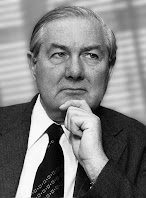"Both sides of the culture war profited from caricatures of Francis as Pope Woke. The reality was less clear-cut. He distrusted the liberal impulse to make the church a vague, hand-wringing Roman branch of the human rights campaign. His positions on war, free-market exploitation and climate change were all in the mainstream of Catholic Social Teaching, though articulated with unusual directness and clarity. His interviews often gave the impression that he thought the church’s hang-ups about sexuality were just that - symptoms of an un-Christlike clerical trend to flee from real humanity." James Butler on Pope Francis.
Eliza Apperly examines how Hilter's favourite film director, Leni Riefenstahl, spent a lifetime covering up her central role in the Nazi propaganda machine.
"The story of the divide between the right and left brain has become one of the most cherished ideas in psychotherapy. It shows up virtually everywhere we look, branching into a myriad of techniques and approaches, creating an entire ecosystem." But, ask Pascal Vrticka and Ana Lund, is there any truth in this story?
Keith Frankish remembers the philosopher Daniel Dennett: "Dan didn’t see philosophy as a specialism remote from everyday life or distinct from the work of scientists. He saw it as an attempt to see how science and everyday reality fit together - how a world of subatomic particles obeying strict physical laws could at the same time be a world of free, conscious agents, with thoughts, hopes and dreams."
The Digital Dickens Notes Project allows you to explore the working notes Charles Dickens kept as he wrote his novels in monthly or weekly installments. In as few as 19 pages per novel, his notes are concise, dynamic records of Victorian serial composition.

No comments:
Post a Comment